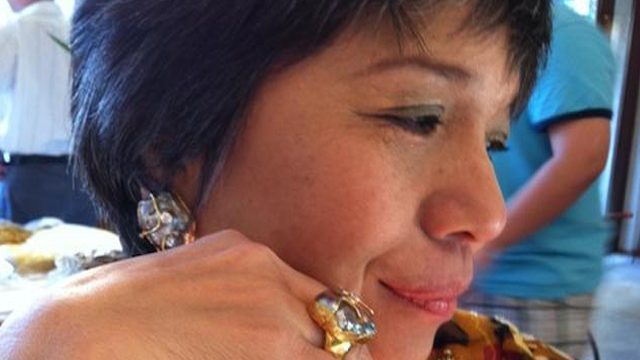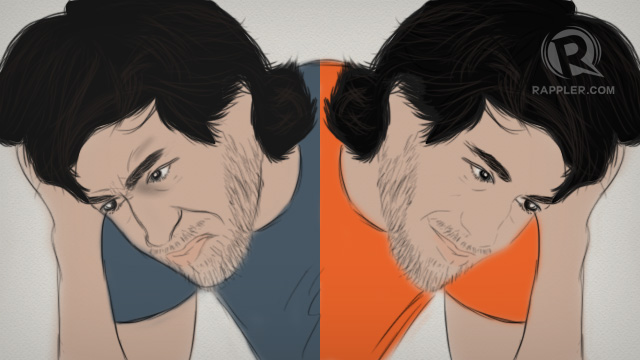SUMMARY
This is AI generated summarization, which may have errors. For context, always refer to the full article.
 Watch me eat my own words.
Watch me eat my own words.
I wrote that “a good clinical psychologist is measured when diagnosing disorders,” yet here I am today, just a week later, saying Aaron Swartz very likely had bipolar disorder (BPD).
But wait! I can explain.
I fell in love with Aaron Swartz the minute I read the first article about him. That love grew as I read his blog more and more, and all the inspiring, occasionally frustrating, things about him from people who knew and loved him. But with love comes truth. And if part of that truth is that he had a bipolar disorder, then so be it.
After extensive research on supertasters, Aaron was quick to diagnose himself as such. He did admit to being depressed and many friends wrote about his painful bouts with the disorder. However, having a more intense sense of taste than average is somewhat easier to accept than having a mental disorder that psychiatrists and countless researchers have identified as one of the two most severe mental disorders. The other is schizophrenia.
My hypothesis is that Aaron would have had no problem saying he was bipolar. Many have mentioned his humility despite being lauded for his many accomplishments. Indubitably many who worked and hung out with him would’ve loved Aaron as much, if not more, knowing he was bipolar. Yet I am not too sure his family would have welcomed this (admittedly premature) diagnosis.
Take Ying-Ying Chang, the mother of Iris Chang, the brilliant, passionate and charismatic woman who wrote “The Rape Of Nanking.” At 71, Ying-Ying Chan, a retired biochemist and microbiology professor, wrote her memoir, “The Woman Who Could Not Forget; Iris Chang Before and Beyond the Rape of Nanking” to “save” her daughter’s reputation which “died” when she was diagnosed as bipolar.
Iris Chang rejected her diagnosis, as did her mother, who said at an interview: “People will criticize her as a mentally unstable person and that will affect not only how people view what she wrote, but it’s very bad because of the right-wing Japanese attack.” Mrs Chang further said, “We knew she was suicidal. She left a suicide note.”
But they disagree that she had a mental illness. “She was extremely tired physically and she just broke down. And, yes, she was depressed a little but it’s not so serious.”
Of course, I cannot know for certain, but part of me feels that, if only Iris Chang had accepted her diagnosis, maybe the help she sought would’ve been more effective since it would have targeted what was really the matter (Bipolar II) rather than merely lack of sleep or depression.
Iris Chang and Aaron Swartz
Perhaps the same happened with Aaron Swartz, who was as creatively intelligent, intensely focused and yet engaging and charismatic as Iris Chang. Iris Chang, like Aaron in so many ways, was described as “a phenomenon” who “truly had no fear. You could see it in the steadiness of her voice and in her persistence.” She “was first and foremost an advocate.…But some scholars felt that she was a little too involved with her subject matter.”
Maybe, just maybe an acceptance that both were bipolar would’ve enabled such breathtaking shooting stars to last a little longer, if only for us mere mortals who benefited so, so much from them.
“Whoa,” you may be saying to yourself, “Aren’t you jumping the gun? Swartz admitted he had been depressed. But bipolar disorder is an entirely different kettle of fish. What makes you so sure?”
Symptoms
Caveat: I never treated Aaron Swartz, so I cannot know for certain. However, his symptoms certainly included hypomania as well as depression; and the end result was also fairly typical of Bipolar II. Even if all Swartz seemed to exhibit, by word and deed, were simply depressive, rather than bipolar, symptoms, that would still not be a guarantee that he was not bipolar.

John Mcmanamy, the author of “Living Well with Depression and Bipolar Disorder: What Your Doctor Doesn’t Tell You That You Need to Know” (2006) and the first to tackle both depression and bipolar disorder in one book, said on more than one occasion that depressives are really bipolars waiting to reveal themselves as such. Examples are Winston Churchill, Virginia Woolf, and Andrew Solomon who wrote “The Noonday Demon: An Atlas of Depression” (2002) which won the National Book Award for Nonfiction and was a finalist for the Pulitzer Prize for general non-fiction. Sought after as a speaker and advocate of unipolar depression, he had his first hypomanic episode a few years later.
At times, he behaved as if hypomanic: reckless, impulsive, engaging in behaviors that could harm himself or others. Recklessness, of course, presents itself in many ways. Swartz was not typically reckless; He didn’t run up debts, didn’t become bankrupt, was not sexually promiscuous to the extent that he didn’t know the names of women he slept with. In fact, the women who had relationships with him loved him, among other things, because of his loyalty and understanding.
To quote Cory Doctorow, Aaron’s recklessness put him right in harm’s way. Aaron snuck into MIT, downloaded a lot of journal articles (many in the public domain), and then snuck in and retrieved them. It was poor judgment, another symptom of BPD.
Rage is another typical symptom of BPD. Doctorow writes, “(Aaron had this) really unfortunate pattern of making high-profile, public denunciations of his friends and mentors. Many of us ‘grown-ups’ in Aaron’s life have had to check in with one another and make sure that no one was too stung by Aaron.”
Finally, like many functioning bipolars, Aaron had a mind like quicksilver, intensely focused yet able to jump from topic to topic, able to think things through, and potentially (in Aaron’s case, also actually) solve problems that seemed insurmountable beforehand.
Suicide
“Ok, ok, I’m convinced” and yet…why talk about this now that Aaron is dead? Isn’t this like locking the barn door once the horse has fled?”
Well, yes and no. Perhaps yes for Aaron who, if he (or those who loved him) were more aware that he was bipolar, would’ve taken extra care of himself (or of him). Perhaps his friends and family would’ve been more vigilant about Aaron’s state of mind if more people knew what strong connections existed between bipolar disorder and suicide. These include the following:
- The death rate for untreated bipolar patients is higher than that of most types of heart disease and many types of cancer.
- Studies of bipolar patients indicate that 25%-50% of persons with this illness make at least one suicide attempt.
- Studies indicate that most bipolar patients who die by suicide communicate their suicidal state to others, most often through direct and specific statements of suicidal intent.
- People suffering from bipolar disorder may die by suicide earlier in the course of this chronic illness than patients with other mental disorders. Recent hospital discharge is a very high-risk time.
Also, perhaps knowing Swartz was bipolar might have helped people understand many of the reasons he behaved as he did. They might have found more effective ways to see him through the bad times, forgive him even more for the rage times, and perhaps even be less vindictive in trying to prosecute him.
But it is not too late for the rest of us who want to live in a society which realizes that the less we punish people with bipolar disorder, the less stigma will be attached to it, and the more willing many will be to have themselves diagnosed and identified as such. And then maybe brilliant and generous shooting stars like Aaron can shine more brightly without burning themselves out. – Rappler.com
You might also like to read:
Add a comment
How does this make you feel?
There are no comments yet. Add your comment to start the conversation.